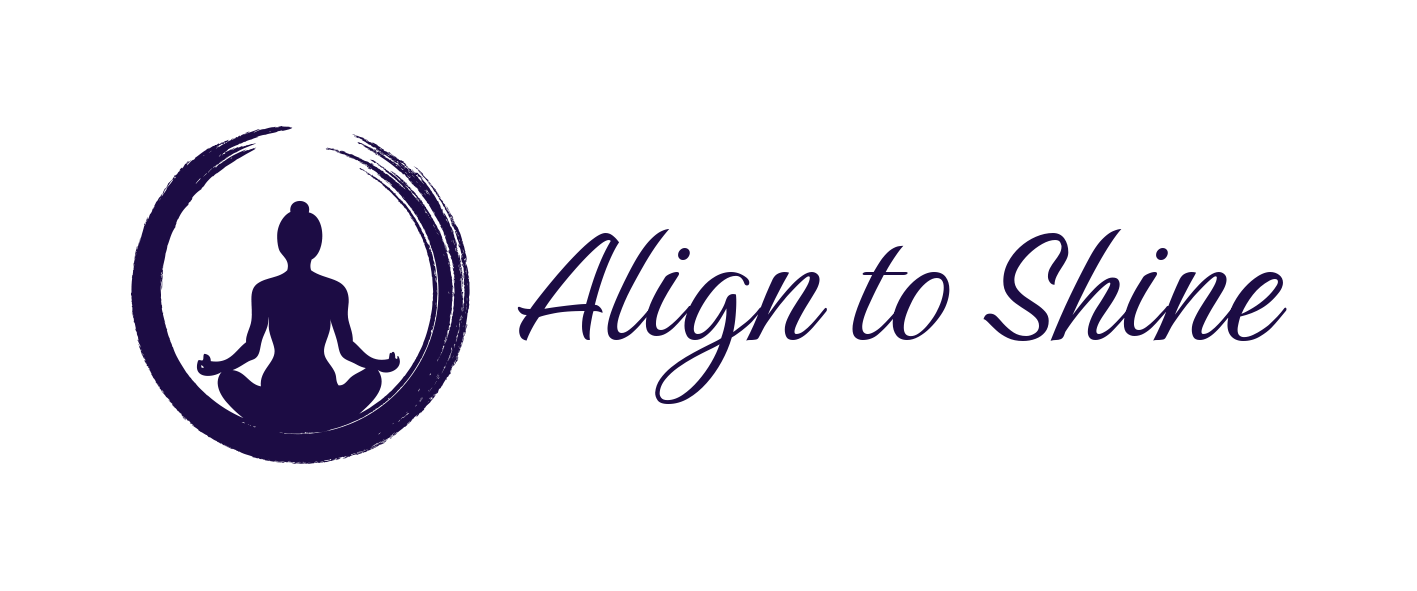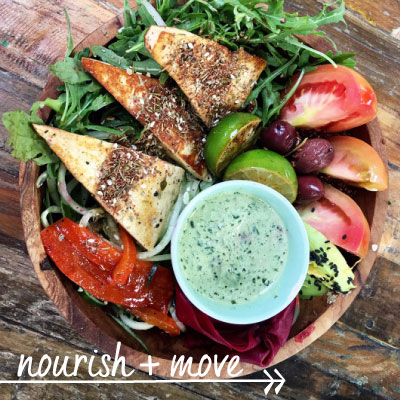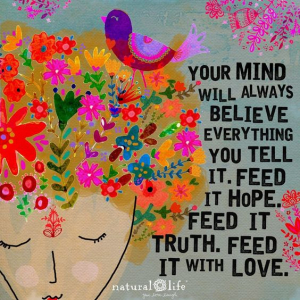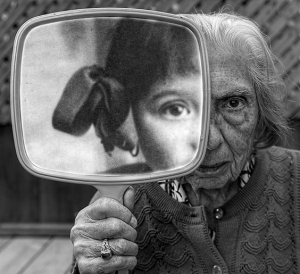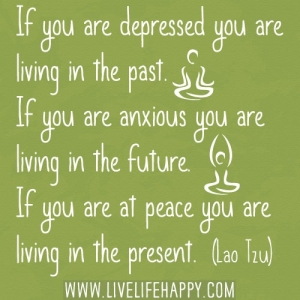In preparing to write about the lack of gentle touch in men’s lives, I right away thought, “I feel confident I can do platonic touch, but I don’t necessarily trust other men to do it. Some guy will do something creepy. They always do”. Quickly on the heels of that thought, I wondered, “Wait a minute, why do I distrust men in particular?” The little voice in my head didn’t say, “I don’t necessarily trust people to not be creepy”, it said, “I don’t trust men”.
In American culture, we believe that men can never be entirely trusted in the realm of the physical. We collectively suspect that, given the opportunity, men will revert to the sexual at a moment’s notice. That men don’t know how to physically connect otherwise. That men can’t control themselves. That men are dogs.
There is no corresponding narrative about women.
 Men need gentle platonic touch in their lives just as much as women do.
Men need gentle platonic touch in their lives just as much as women do.Touch Isolation
Accordingly, it has become every man’s job to prove they can be trusted, in each and every interaction, day by day and case by case. In part, because so many men have behaved poorly. And so, we prove our trustworthiness by foregoing physical touch completely in any context in which even the slightest doubt about our intentions might arise. Which, sadly, is pretty much every context we encounter.
We crave touch. We are cut off from it. The result is touch isolation.
And where does this leave men? Physically and emotionally isolated. Cut off from the deeply human physical contact that is proven to reduce stress, encourage self esteem and create community. Instead, we walk in the vast crowds of our cities alone in a desert of disconnection. Starving for physical connection.
We crave touch. We are cut off from it. The result is touch isolation.
 Men crave touch but are cut off from it and experience touch isolation.
Men crave touch but are cut off from it and experience touch isolation.The Comfort of Contact
How often do men actually get the opportunity to express affection through lasting platonic touch? How often does it happen between men? Or between men and women? Not a hand shake or a hug, but lasting physical contact between two people that is comforting and personal, but not sexual. Between persons who are not lovers and never will be. Think holding hands. Or leaning on each other. Sitting together. That sort of thing. Just the comfort of contact. And if you are a man, imagine five minutes of contact with another man. How quickly does that idea raise the ugly specter of homophobia? And why?
While women are much freer to engage in physical contact with each other, men remain suspect when they touch others. There is only one space in our culture where long-term platonic physical contact is condoned for men, and that is between fathers and their very young children.
 How often do men experience physical contact without it being sexual?
How often do men experience physical contact without it being sexual?The Transformative Effect of Fatherhood
I found this kind of physical connection when my son was born. As a stay at home dad, I spent years with my son. Day after day, he sat in the crook of my arm, his little arm across my shoulder, his hand on the back of my neck. As he surveyed the world from on high, I came to know a level of contentment and calm that had previously been missing in my life.
The physical connection between us was so transformative that it changed my view of who I am and what my role is in the world. Yet it took having a child to bring this calming experience to me because so few other opportunities are possible to teach men the value and power of gentle loving touch.
 Fatherhood has the potential to transform the way men think about touch.
Fatherhood has the potential to transform the way men think about touch.A Lack of Physical Connection
As a young child and as a teenager, contact between myself and others simply didn’t happen unless it came in the form of rough housing or unwelcome bullying. My mother backed off from contact with me very early on, in part, I think, due to her upbringing. I can only guess that in her parent’s house physical touch was something for toddlers, but not for children past a certain age. Add to that, the fact that my father was absent due to my parent’s divorce and years of work overseas, and it meant I grew up without being held or touched.
This left me with huge insecurities about human contact. I was well into my twenties before I could put my arm around a girl I was dating without first getting drunk. To this day, I remain uncertain about where and how to approach contact with people, even those I consider close friends. It’s not that I can’t do it, it’s just that it remains awkward, odd. As if we all feel like we’re doing something slightly…off?
Contact with male friends is always brief; a handshake, or a pat on the back. Hugs with men or women are a ballet of the awkward, a comedic choreography in which we turn our groins this way or that. Shoulders in, butts out, seeking to broadcast to anyone within line of sight that we are most certainly not having a sexual moment. We’re working so hard to be seen as sexually neutral that we take no joy in these moments of physical connection.
 Men often experience a lack of gentle touch from others from a young age.
Men often experience a lack of gentle touch from others from a young age.The Sexualising of Touch
Not only do we men distrust others in this muddled realm of physical touch, but years of shaming and judgement have left us distrusting ourselves. Did I enjoy that too much? Am I having taboo thoughts? This distrust leaves us uncertain about touching another human being unless we have established very clear rules of engagement. Often we give up and simply reduce those rules to being in a relationship. We allow ourselves long-lasting comforting touch with our girlfriends or boyfriends. The vast universe of platonic human touch is suddenly reduced to the exclusive domain of one person and is blended into the sexual. That’s a lot of need to put on one person, however loving and generous they might be.
Which leads to the question, how do we teach our sons to understand how touch works? How to parse out the sexual from the platonic? Is the pleasure of human contact inherently sexual to some degree? I doubt it’s a question the average Italian man would ever ask himself. But here in America, generations of puritanical sexual shaming have made it a central question. By putting the fear of the sexual first in all our interactions, we have thrown out the baby with the bathwater, avoiding all contact rather than risk even the hint of unwanted sexual touch.
 The sexualising of touch means that physical contact can be uncomfortable for men.
The sexualising of touch means that physical contact can be uncomfortable for men.Giving up Human Contact
Many parents step back from physical contact with boys when their sons approach puberty. The contact these boys seek is often deemed confusing or even sexually suspect. And, most unbelievable of all, all opportunity for potential physical touch is abruptly handed over to young girls, who are suddenly expected to act as gatekeepers to touch, and who are no more prepared to take on this responsibility than boys are to hand it over.
And so boys are cast adrift with two unspoken lessons:
- All touch is sexually suspect
- Find a girlfriend or give up human contact
A particularly damning message to boys who are gay.
American culture leaves boys few options. While aggression on the basketball court or bullying in the locker room often results in sporadic moments of human contact, gentleness likely does not. And young men, whose need for touch is channeled into physically rough interactions with other boys or fumbling sexual contact with girls, lose conscious awareness of the gentle, platonic contact of their own childhoods. Sometimes it’s not until their children are born that they rediscover gentle platonic touch; the holding and caring contact that is free from the drumbeat of sex, sex, sex that pervades our culture, even as we simultaneously condemn it.
 The message is that gentle touch is not part of being a man in our society.
The message is that gentle touch is not part of being a man in our society.Craving Real Connection
Is it any wonder that sexual relationships in our culture are so loaded with anger and fear? Boys are dumped on a desert island of physical isolation, and the only way they can find any comfort is to enter the blended space of sexual contact to get the connection they need.
This makes sexual relations a vastly more high stakes experience than it already should be. We encourage aggressive physical contact as an appropriate mode of contact for boys and turn a blind eye to bullying, even as we then expect them to work out some gentler mode of sexual contact in their romantic lives.
If men could diffuse their need for physical connection across a much wider set of platonic relationships, it would do wonders for our sense of connection in the world. As it is, we can’t even manage a proper hug because we can’t model what was never modeled for us.
We have seniors in retirement homes who are visited by dogs they can hold and pet. This helps to improve their health and emotional state of mind. It is due to the power of contact between living creatures. Why are good-hearted people driving around town, taking dogs to old folks homes? Because no one is touching these elderly people.
They should have grandchildren in their laps every day, or a warm human hand to hold, not Pomeranians who come once a week. And yet, we put a dog in their laps instead of giving them human touch, because we remain a culture that holds human contact highly suspect. We know the value of touch, even as we do everything we can to shield ourselves from it.
We American men have a tragic laundry list of reasons why we are not comfortable with touch:
But at the root of all these flawed rationalizations is the fact that most American men are never taught to do gentle non-sexual touch. We are not typically taught that we can touch and be touched as a platonic expression of joyful human contact. Accordingly, the very inappropriate over-sexualized touch our society fears runs rampant, reinforcing our culture’s self fulfilling prophecy against men and touch. Meanwhile, this inability to comfortably connect via touch has left men emotionally isolated, contributing to rampant rates of alcoholism, depression and abuse.
And what if the lack of platonic touch is causing some men to be far too aggressive toward women, who, as the exclusive gatekeepers for gentle touch are carrying a burden they could never hope to fully manage? Women, who are arguably both victims of and, in partnership with men, enforcers of the prohibition against platonic touch in American culture? The impact of our collective touch phobia is felt across our society by every single man, woman and child.
But here’s the good news.
There are many reasons why full-time stay at home dads are proving to be such a transformative force in American culture. One powerful reason is the awakening of touch. As full-time dads, we are presented with the absolute necessity to hold our own wonderful children. We are learning about touch in the most powerful and life-affirming way. In ways that previous generations of men simply were not immersed in.
Once you have held your sleeping child night after night or walked for years with their hand in yours, you are a changed person. You gain a fluency and confidence in touch that you will never lose. It is a gift to us men from our children that literally has the capacity to transform American culture.
Accordingly, now, when I am with a friend I do reach out. I do make contact. And I do so with confidence and joy. And I have my own clear path forward.
The patterns in my life may be somewhat set but I intend to do everything I can to remain in contact with my son in hopes that he will have a different view of touch in his life. I hug him and kiss him. We hold hands or I put my arm around him when we watch TV or walk on the street. I will not back off from him because someone somewhere might take issue with our physical connection. I will not back off because somehow there is an unspoken rule that I must cut him loose in the world to fend for himself. I hope we can hold hands even when he is a man. I hope we continue to hold hands until the day I die.
Ultimately, we will unlearn our fear of touch in the context of our personal lives and in our day-to-day interactions. Learning how to express platonic love and affection through touch is a vast and remarkable change that has to be lived. But it is so important that we do it. Because it is central to having a rich and full life.
 There needs to be more modeling for men of a range of platonic relationships.
There needs to be more modeling for men of a range of platonic relationships. Older people are brought therapy animals to alleviate the lack of touch in their lives.
Older people are brought therapy animals to alleviate the lack of touch in their lives. The fear that surrounds physical connection results in men becoming isolated.
The fear that surrounds physical connection results in men becoming isolated. Men are limited in their attempts to express their vulnerability.
Men are limited in their attempts to express their vulnerability. The awakening of touch is possible for men who let go of their fear and reach out.
The awakening of touch is possible for men who let go of their fear and reach out.